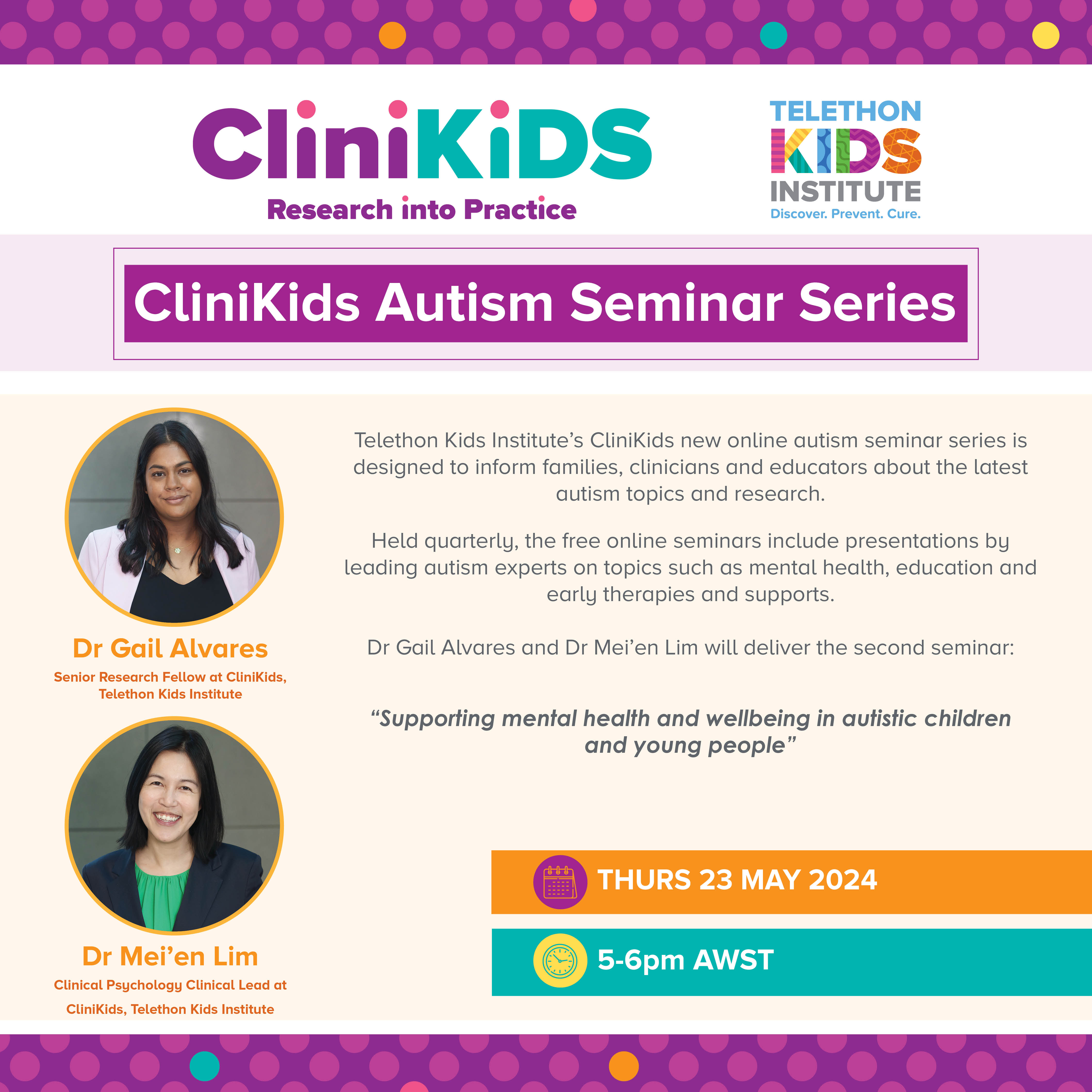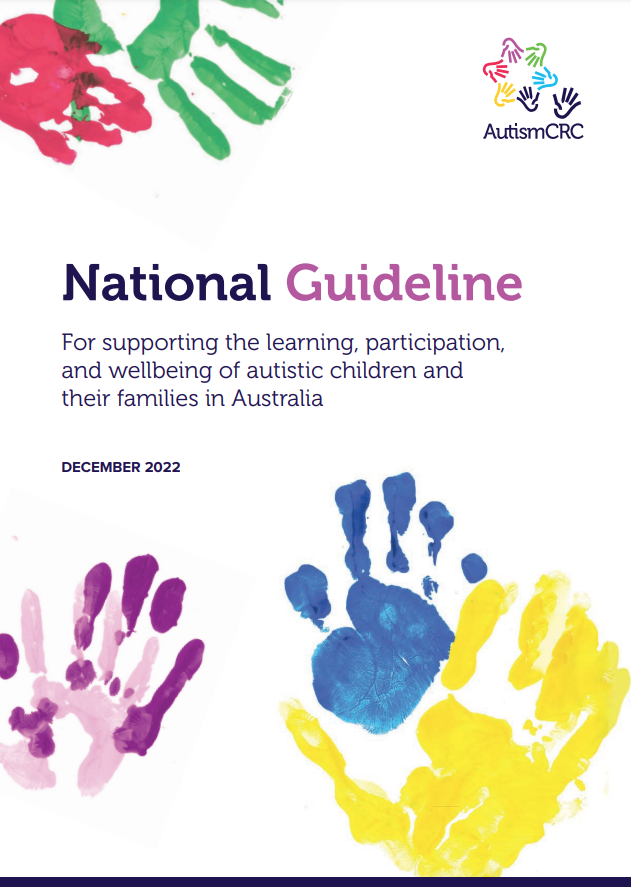Search

News & Events
Major funding announced to kickstart key WCVID projectsThe Wesfarmers Centre of Vaccines and Infectious Diseases (WCVID) awarded three successful recipients with Catalyst research grants, with each researcher receiving $80,000 towards their chosen project.

We’ve linked some helpful resources to assist you in your journey to healthy screen time habits in and outside of your household.

News & Events
Mental health seminarHere you will find follow up information from our autism seminar on mental health and autism.

News & Events
Supporting autistic children guideline - short courseCliniKids has partnered with Autism CRC to deliver an online self-paced short course which explores the Recommendations included within the National Guideline for supporting the learning, participation, and wellbeing of autistic children and their families in Australia.

News & Events
PACT now available via telehealthPaediatric Autism Communication Therapy is now available at CliniKids via telehealth.

News & Events
Frangipani Family DayFrangipani Family Day is an opportunity for CliniKids to celebrate the families we engage with through our clinical services and research.

News & Events
Meet the Client Support TeamThe Client Support Team at CliniKids has some new faces! Nicki and Amy join our lovely Tracy.

Our team is comprised of well experienced clinicians who can support your child and family.
